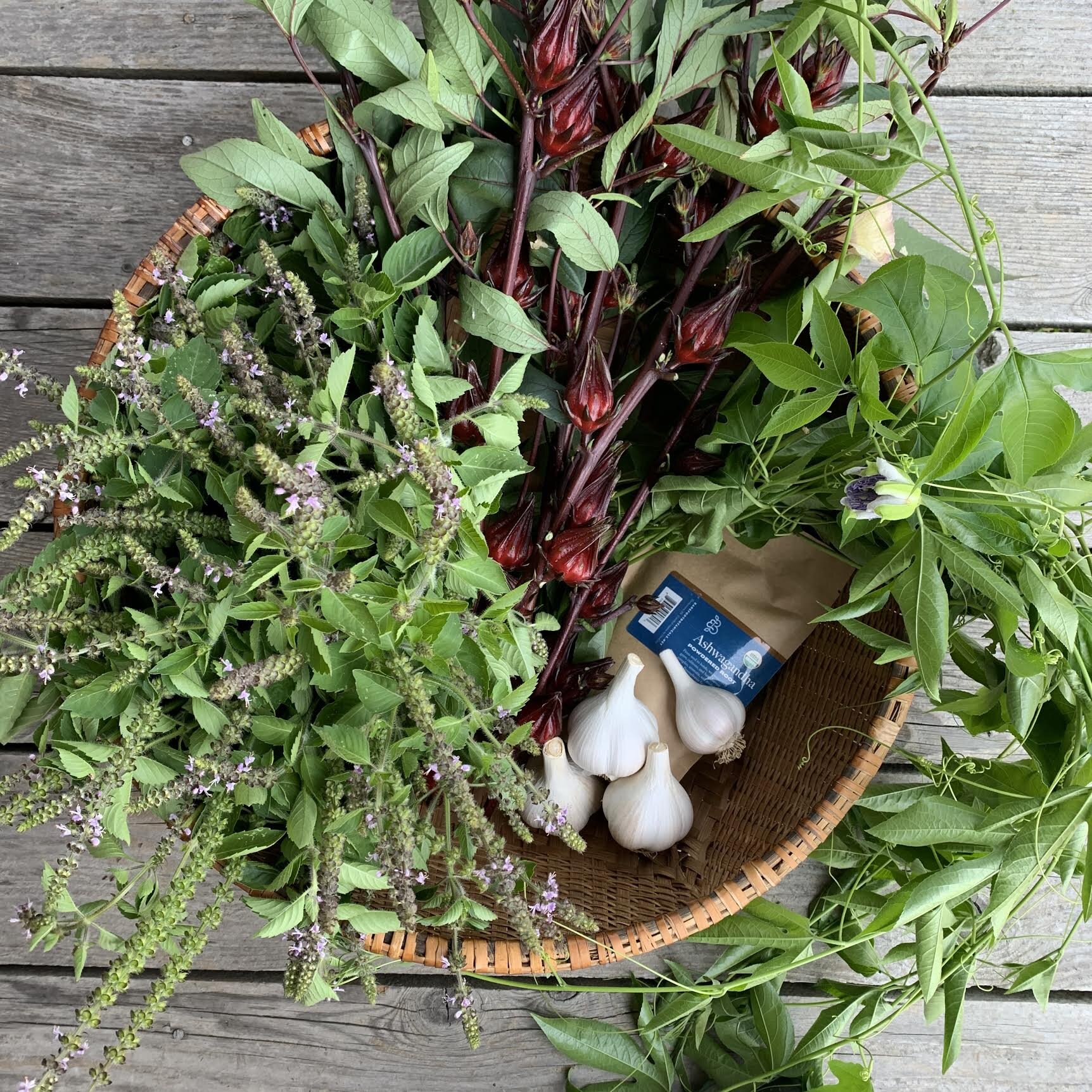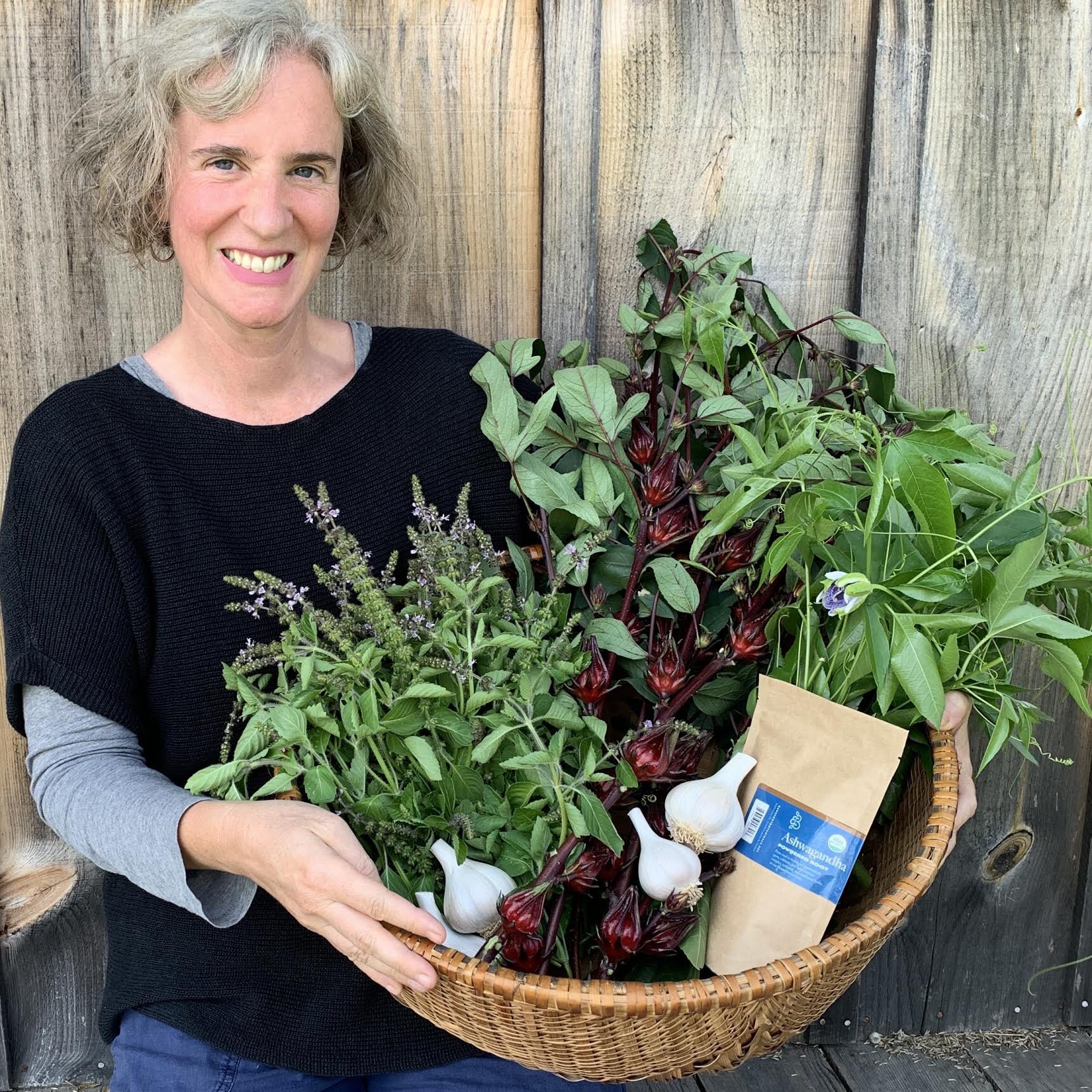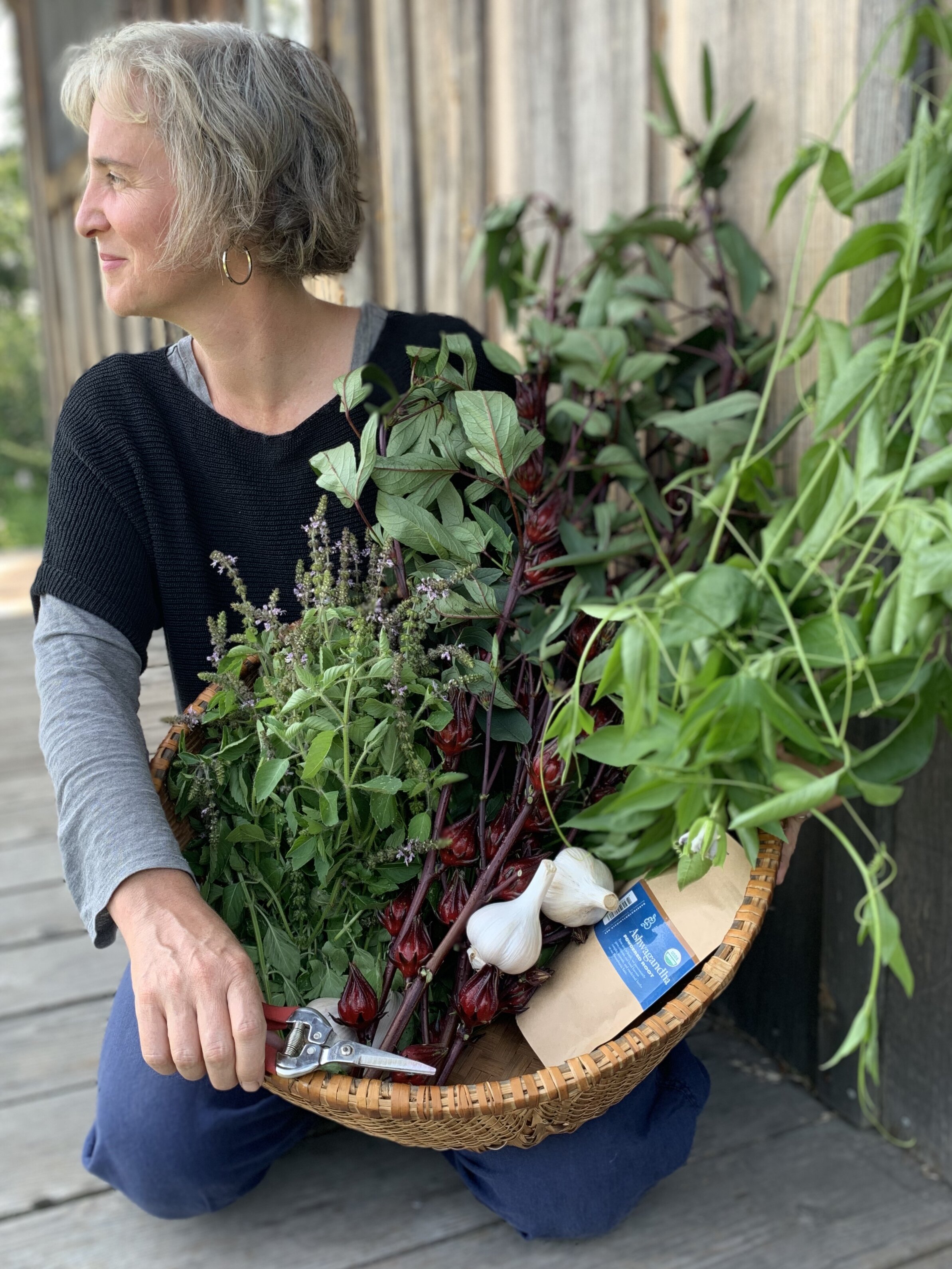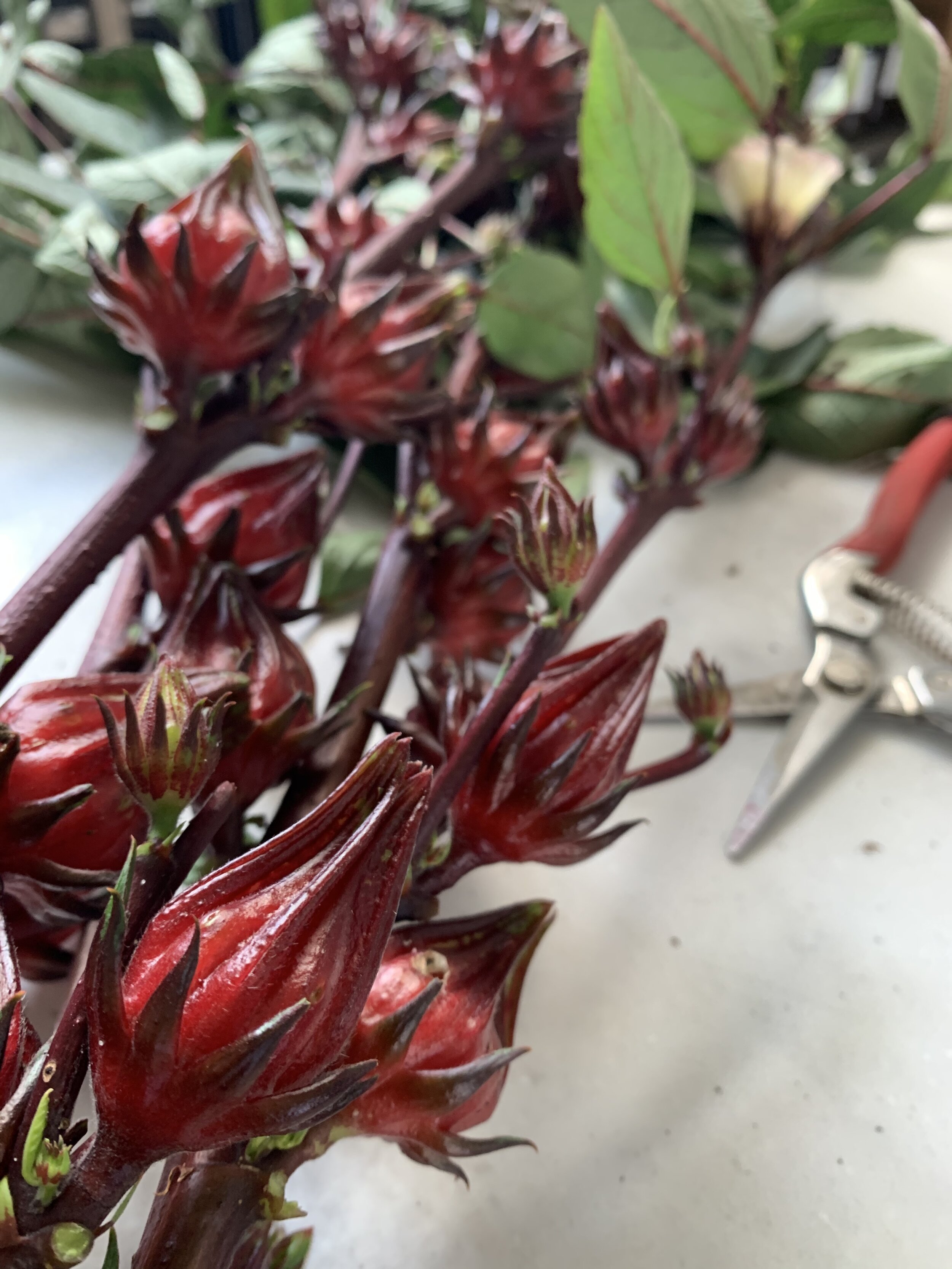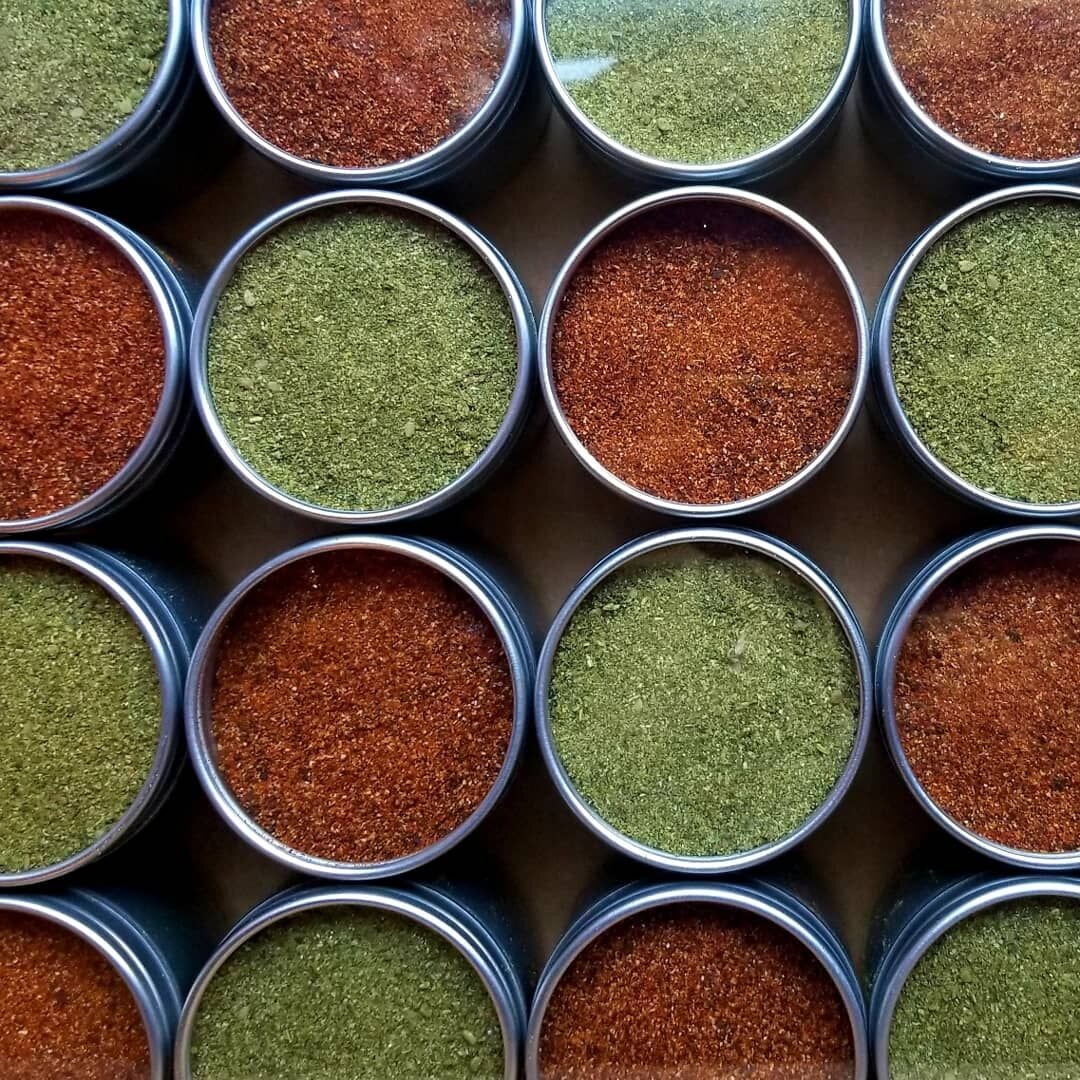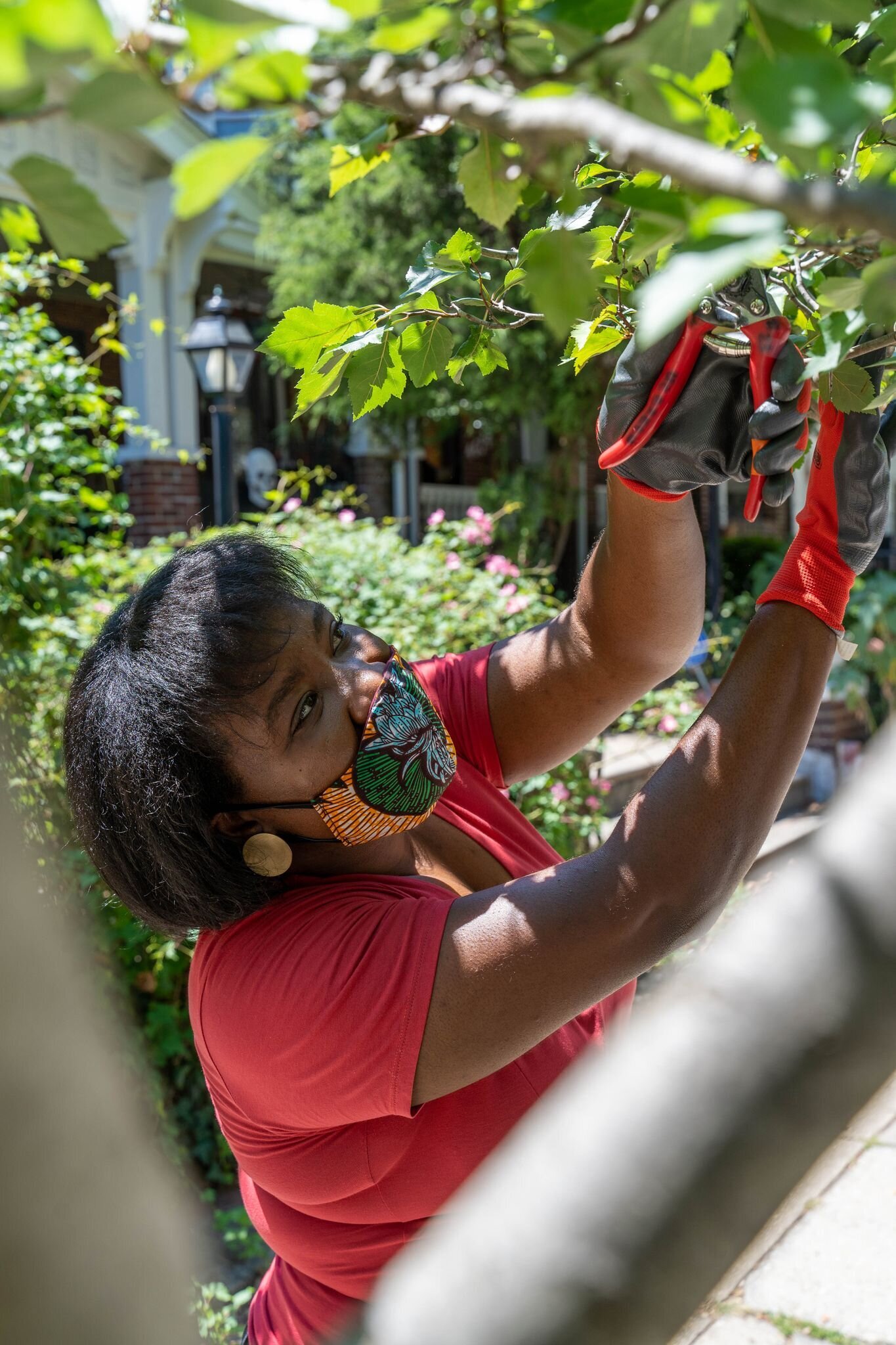When Barefoot Botanicals farmer-owner Linda Shanahan launched her Medicine Maker program a few years ago, she brought students onto her herb farm in Doylestown for monthly lessons on growing, foraging, processing, and using herbs to support everyday health and minor ailments.
While interest in herbal medicine is stronger than ever, the COVID-19 pandemic has put that in-person, hands-on instruction is on hold. So Shanahan has taken her educational Medicine Maker Herbal CSA program online to reach even more herb-curious consumers.
Each month, participants receive monthly bundles of four fresh or dried herbs grown by Shanahan and her crew on the 18 certified organic acres they lease in Bucks County, accompanied by high-quality video tutorials on making teas, tinctures, and salves as well as a a monthly live-video session.
Shanahan’s own journey with medicinal plants began when she left the Philly area for southern Oregon back in the mid-’90s, where the outdoorsy culture there put her in close contact with natural spaces—and their plant inhabitants. The high-desert ecosystem she encountered on walks and hikes was nothing like what she’d seen back east, and she threw herself into learning about her new home by examining the plants all around her. She took a course with a local herbalist that covered botany, ecology, and medicine making, foraging for wild plants in the Cascade Range.
“I think it’s helpful to have some basic herbal education to help people make better consumer choices,” Shanahan says. “One of the biggest holes in our current system is people don’t really know how to navigate the herbal marketplace.”
“I entered into this entire new world, and there was a whole culture there around herbalism that I didn’t know existed,” Shanahan says. “I was charted on the course for the rest of my life from that point on.”
She took another course, and another—and then, wanting to be closer to her Philly family, she moved back home in 2004. But the transition from the crunchy Pacific Northwest culture in which she flowered was a rough one. Slowly, she began finding her people again—and more and more of them seemed drawn to what she and other early herbalists in the Philly area were doing.
“Once I came back here, it seems as though there’s been this exponential growth of interest in herbalism, [but] on a fairly surface level,” she says. So when Shanahan launched Barefoot Gardens in 2008, she knew she wanted to teach about herbs, too.
If you want to learn about herbal medicine, you couldn’t do much better than Shanahan. In addition to her years of instruction with prominent herbalists, she also holds a Master of Science in Nursing, which she put to use as a hospice nurse before trading in her scrubs for farm life.
Shanahan, who still teaches as an adjunct, finds similarities between the collaborative, holistic nature of hospice nursing and herbalism. She’s able to prepare her nursing students to work with patients who may use herbal remedies in addition to allopathic ones.
“I teach about safety with herbs, like drug interactions, whereas very few people in nursing or conventional medicine have a deep understanding of that,” she says.
For her Medicine Maker students, Shanahan’s qualifications—as well as the grounded, science-based way she approaches turning plants into remedies—help bring the material to life even more and create trust that what they’re learning can be effective.
“Linda does have a very scientific mind and talks about supporting body systems, diet, sleep, and other factors for overall wellness, and the herbs are extra support for that,” says Kristin Donnelly, an alumna of the in-person classes who signed up for the remote Medicine Maker program again this year. “She’s more clinical and science-oriented, so I appreciate that.”
When COVID-19 hit earlier this year, Shanahan saw that long-simmering interest in herbal medicine come to a boil. With little and sometimes contradictory guidance from health officials around mitigating the spread of the disease in the early days of the pandemic, consumers turned to folk and herbal remedies as backup protection against the virus. She saw a sudden interest in immune-supporting herbs like astragalus that barely sold before—but it takes more than a daily dropperful of tincture to get the most out of plant medicine.
“I think it’s helpful to have some basic herbal education to help people make better consumer choices,” Shanahan says. “One of the biggest holes in our current system is people don’t really know how to navigate the herbal marketplace.”
But even with the demand she had seen from previous years amplified as anxious consumers looked to herbs to shore up their health, taking the program online was more complicated than simply setting up a Zoom account. Shanahan added a videographer to Barefoot’s small staff to produce quality how-tos that would replace the monthly in-person medicine lessons on the farm.
“People seem to really be loving it,” Shanahan says. “One of the biggest things people have said to me about the course is that things are clicking for them. They’ve been reading things online, they’ve been going to the store and buying dried herbs or ordering them from Mountain Rose and trying to make things on their own—but [until the course] they didn’t fully understand why they were doing certain steps in the process.”
In addition to pre-recorded videos, Shanahan also hosts a monthly Zoom chat with students. It’s not quite the same as meeting in-person, says participant Sharon Scenna, but it helps to build connections just the same.
“It’s nice to be able to see and hear what other people are experimenting with—best practices and lessons learned, sharing tips,” Scenna says. “She’s created a really nice community which is a nice benefit, especially during COVID, when we don’t have a lot of community activities going on.”
Since she’s no longer limited by the number of students who can fit on the farm, Shanahan hopes to grow the Medicine Maker program beyond its current 40 students. That expansion would bring Shanahan’s remote student body from around 40 this year to up to 200 in 2021— with the possibility of shipping herbs further, allowing her to grow the program’s reach beyond her Bucks County community and the greater Philly area. The program is typically sold out by January or February.
“I just feel like it’s a great way to connect with our regional ecology and economy, similar to a veggie CSA,” Shanahan says. “But this connects people in a way that is a little bit more expansive, because they can take the medicine they make and share it. They’re taking my gift to them and then turning it into gifts for their community. My goal with this is to create little community herbalists all over.”
Get more info and sign up for Barefoot Botanicals’ 2021 Medicine Maker Herbal CSA here.




